What is vocational training?
Vocational training is a process of learning that allows an individual to acquire the necessary knowledge and skills to exercise a trade or other professional activity.
Answers to some common questions
Yes! Vocational training is structured according to the following paths: training leading to a diploma of vocational studies (DEP), training leading to an attestation of vocational specialty (AVS/ASP – attestation de spécialisation professionnelle) and training that leads to a Skills Training Certificate (STC/AFP – attestation de formation professionnelle).
Yes! Vocational training is not an end in itself… In addition to enabling youth to directly enter the labor market, it also permits them, with certain conditions, to pursue studies in college or university.
- Vocational training teaches youth to work according to labor market requirements.
- It promotes skills acquisition.
- It leads to competitive salaries and attractive working conditions.
- Vocational training is a gateway to pursuing higher education if the student so desires.
- Vocational training programs vary from 600 to 1800 hours (six months to two years) and offers valuable hands-on internships to acquire skills in demand by employers.
- It offers the students vocational training courses only: no English, French, Sciences, etc.
- It groups study programs that appeal to reasoning, theoretic knowledge and manual skills.
In general, vocational training is accessible for several study programs beginning in Secondary 3 (with completion of language of instruction, second language and mathematics) while for others, requirements are completion of Secondary 4 language of instruction, second language and mathematics. It is even possible to access vocational training in Secondary 2 when a student is participating in a concurrent pilot project for Secondary 3, (requiring completion of Secondary 2 language of instruction, second language and mathematics).
A person is admitted to a program leading to a diploma of vocational studies (DEP) if they satisfy one of the following conditions:
- They have a secondary school diploma (DES) and meet admission conditions for a program established by the Minister according to article 465 of the Quebec Education Act, (chapter I-13.3);
- They reach the age of 16 years on September 30 of the school year that they begin their vocational training, and they meet the admission conditions of a program established by the Minister according to article 465 of the Education Act;
- They reach the age of 18 years and possess the prerequisites required for admission to this program set by the Minister in conformity with article 465 of the Education Act;
- They obtain credits for Secondary 3 programs established by the Minister, in language of instruction, second language and math, and will pursue concurrently with their vocational training, their Secondary 2 general education programs established by the Minister and required to be admitted to vocational training programs.
Note: For more information refer to the Inforoute vocational and technical training site.
Different vocational training programs can be followed concurrently with certain secondary courses. Thanks to this principle of concurrence, the student can simultaneously complete their vocational training and their general education in Secondary 4 or 5, instead of waiting to finish Secondary 5! They can thus alternate between their general education that remains to be completed, and vocational training that directly implicates them in the field they are attracted to.
Since the fall of 2014, pilot projects of concurrency in Secondary 3 have been offered to students. They must be 15 years old on June 30 of the school year preceding the beginning of the project and have obtained their Secondary 2 prerequisites in the three basic subjects.
Different partnerships exist between vocational training centres and high schools specifically to promote school perseverance among youth who need to live concrete and relevant experiences.
To consult:
Inforoute FPT Visit the Inforoute FPT which presents numerous vocational and technical training programs offered throughout Quebec.
The workplace apprenticeship program by Emploi-Québec allows sectors to develop the skills of their manpower according to a proven formula: the apprenticeship. Experienced journeymen transmit to the student apprentice the necessary skills to master their trade. Apprenticeships are conducted according to a structured training plan and acts as a means to transmit knowledge that is simple, flexible and above all adapted to the daily reality of the business.
- There are some 150 vocational training (DEP) study programs.
- The passing grade is generally 80% in each of the modules of vocational training.
- It is possible to attend cégep with a DEP and not necessarily have a high school diploma (DES).
- Students pursue their training in attractive facilities and use the latest equipment.
- Many vocational training graduates go on to have remarkable careers.
- Some school commissions and school service centres offer a short course Skills Training Certificate program (AEP).
- Financial aid may be available for vocational training students who lack sufficient financial resources to pursue their studies.
